I have prepared an SQL Fiddle for my question -
In a 2-player word game I store players and their games in the 2 tables:
CREATE TABLE players (
uid SERIAL PRIMARY KEY,
name text NOT NULL
);
CREATE TABLE games (
gid SERIAL PRIMARY KEY,
player1 integer NOT NULL REFERENCES players ON DELETE CASCADE,
player2 integer NOT NULL REFERENCES players ON DELETE CASCADE
);
And the letter tiles placing moves and resulting words and scores are stored in another 2 tables:
CREATE TABLE moves (
mid BIGSERIAL PRIMARY KEY,
uid integer NOT NULL REFERENCES players ON DELETE CASCADE,
gid integer NOT NULL REFERENCES games ON DELETE CASCADE,
played timestamptz NOT NULL,
tiles jsonb NOT NULL
);
CREATE TABLE scores (
mid bigint NOT NULL REFERENCES moves ON DELETE CASCADE,
uid integer NOT NULL REFERENCES players ON DELETE CASCADE,
gid integer NOT NULL REFERENCES games ON DELETE CASCADE,
word text NOT NULL CHECK(word ~ '^[A-Z]{2,}$'),
score integer NOT NULL CHECK(score >= 0)
);
Here I fill the above tables with test data containing a game and 2 players (Alice and Bob):
INSERT INTO players (name) VALUES ('Alice'), ('Bob');
INSERT INTO games (player1, player2) VALUES (1, 2);
Their interchanging moves are below, sometimes a single move can produce 2 words:
INSERT INTO moves (uid, gid, played, tiles) VALUES
(1, 1, now() + interval '1 min', '[{"col": 7, "row": 12, "value": 3, "letter": "A"}, {"col": 8, "row": 12, "value": 10, "letter": "B"}, {"col": 9, "row": 12, "value": 1, "letter": "C"}, {"col": 10, "row": 12, "value": 2, "letter": "D"}]
'::jsonb),
(2, 1, now() + interval '2 min', '[{"col": 7, "row": 12, "value": 3, "letter": "X"}, {"col": 8, "row": 12, "value": 10, "letter": "Y"}, {"col": 9, "row": 12, "value": 1, "letter": "Z"}]
'::jsonb),
(1, 1, now() + interval '3 min', '[{"col": 7, "row": 12, "value": 3, "letter": "K"}, {"col": 8, "row": 12, "value": 10, "letter": "L"}, {"col": 9, "row": 12, "value": 1, "letter": "M"}, {"col": 10, "row": 12, "value": 2, "letter": "N"}]
'::jsonb),
(2, 1, now() + interval '4 min', '[]'::jsonb),
(1, 1, now() + interval '5 min', '[{"col": 7, "row": 12, "value": 3, "letter": "A"}, {"col": 8, "row": 12, "value": 10, "letter": "B"}, {"col": 9, "row": 12, "value": 1, "letter": "C"}, {"col": 10, "row": 12, "value": 2, "letter": "D"}]
'::jsonb),
(2, 1, now() + interval '6 min', '[{"col": 7, "row": 12, "value": 3, "letter": "P"}, {"col": 8, "row": 12, "value": 10, "letter": "Q"}]
'::jsonb);
INSERT INTO scores (mid, uid, gid, word, score) VALUES
(1, 1, 1, 'ABCD', 40),
(2, 2, 1, 'XYZ', 30),
(2, 2, 1, 'XAB', 30),
(3, 1, 1, 'KLMN', 40),
(3, 1, 1, 'KYZ', 30),
(5, 1, 1, 'ABCD', 40),
(6, 2, 1, 'PQ', 20),
(6, 2, 1, 'PABCD', 50);
As you can see above, the tiles column is always a JSON list of objects.
But I only need to retrieve the single property of the objects: letter.
So here is my SQL-code (to be used in PHP script displaying player moves in a certain game):
SELECT
STRING_AGG(x->>'letter', ''),
STRING_AGG(y, ', ')
FROM (
SELECT
JSONB_ARRAY_ELEMENTS(m.tiles) AS x,
FORMAT('%s (%s)', s.word, s.score) AS y
FROM moves m
LEFT JOIN scores s
USING (mid)
WHERE m.gid = 1
GROUP BY mid, s.word, s.score
ORDER BY played ASC
) AS z;
Unfortunately, it does not work as expected.
The both STRING_AGG calls put everything together in two huge strings, despite me trying to GROUP BY mid:
Is there please a way to split the resulting strings by a mid (aka move id)?
UPDATE:
My problem isn't the sorting. My problem is that I get 2 huge strings, while I would expect multiple strings, one pair per move id (aka mid).
Here is my expected output, does anybody please have a suggestion on how to achieve it?
mid "concatenated 'letter' from JSON" "concatenated words and scores"
1 'ABCD' 'ABCD (40)'
2 'XYZ' 'XYZ (30), XAB (30)'
3 'KLMN' 'KLMN (40), KYZ (30)'
5 'ABCD' 'ABCD (40)'
6 'PQ' 'PQ (20), PABCD (50)'
UPDATE #2:
I have followed the suggestion by Laurenz (thank you! Here the SQL Fiddle) with:
SELECT
mid,
STRING_AGG(x->>'letter', '') AS tiles,
STRING_AGG(y, ', ') AS words
FROM (
SELECT
mid,
JSONB_ARRAY_ELEMENTS(m.tiles) AS x,
FORMAT('%s (%s)', s.word, s.score) AS y
FROM moves m
LEFT JOIN scores s
USING (mid)
WHERE m.gid = 1
) AS z
GROUP BY mid
ORDER BY mid;
But for some reason the "word (score)" entries are multiplied:


